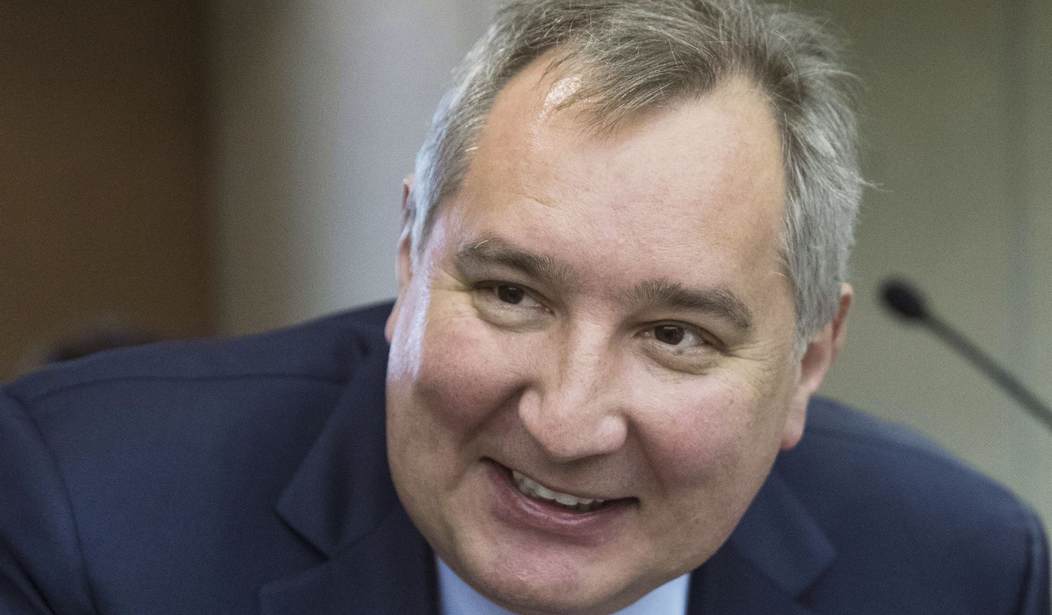Dmitry Rogozin, the loudmouthed head of the Russian space agency Roscosmos, has been ordered to step down by President Vladimir Putin. No reason was given, but Russia and the U.S. are about to ink an agreement that would resume integrated launch operations, and Rogozin’s history of sneering and insulting the American space program probably had something to do with it.
Despite the war in Ukraine, both Russia and the U.S. have continued cooperation in space. The United States needs Russian assistance to run the International Space Station, while Russia needs the hard currency that the U.S. pays for that assistance.
Rogozin was a loose cannon who angered Americans by belittling the U.S. space program.
The shakeup came as NASA and Roscosmos put the finishing touches on a long-sought agreement to resume “integrated” launch operations, that is, assigning cosmonauts to SpaceX Dragon crews and NASA astronauts to Russian Soyuz crews for flights to the International Space Station.
The “seat-swap” arrangement will ensure at least one cosmonaut or astronaut is always aboard the space station to operate or repair their agency’s systems even if an emergency forces a Soyuz or Crew Dragon to leave early, taking all that vehicle’s crew members home with it.
Rogozin once threatened to crash the space station — not an entirely idle threat, but one that would certainly cause many headaches for NASA.
Without Russia, NASA would have to engineer a new solution to help keep the station on the right path in space, so that the vehicle does not slowly fall out of orbit and enter Earth’s atmosphere. “If the Russians walk away, then you’ve got this massive object that’s going to come back in randomly somewhere over the Earth,” Wayne Hale, former program manager of NASA’s Space Shuttle and a member of NASA’s Advisory Council, tells The Verge. However such a scenario would take quite a while to manifest, possibly giving NASA some time to devise an alternate solution. “It’s not like a week, it’ll probably be several years,” says Hale.
“Either we’re going to stay together, or the thing is not going to work,” said Hale. The U.S. has its own club hanging over Russia on the ISS: we supply 100 percent of the power to the station. It’s a symbiotic relationship that can’t be broken, even in times of war.
Rogozin once sneeringly joked that NASA would need trampolines to get its astronauts to space without Russian help and later said the United States would need “broomsticks” to reach orbit without Russian rocket engines. NASA took that broomstick comment and ran with it.
SpaceX, which has now launched 164 Falcon 9 rockets — 30 so far this year alone — recently used Rogozin’s broomstick comment to make a patriotic affirmation of U.S. rocket technology to the delight of listeners tuned in to a company launch webcast.
“Time to let the American broomstick fly, and hear the sound of freedom!” SpaceX launch director Julia Black said as a Falcon 9 countdown neared zero. “LD is go for launch.”
Rogozin was a throwback who had outlived his usefulness. Putin probably enjoyed Rogozin’s poking the bear, but in the end, it got in the way of business, and he had to go.










Join the conversation as a VIP Member